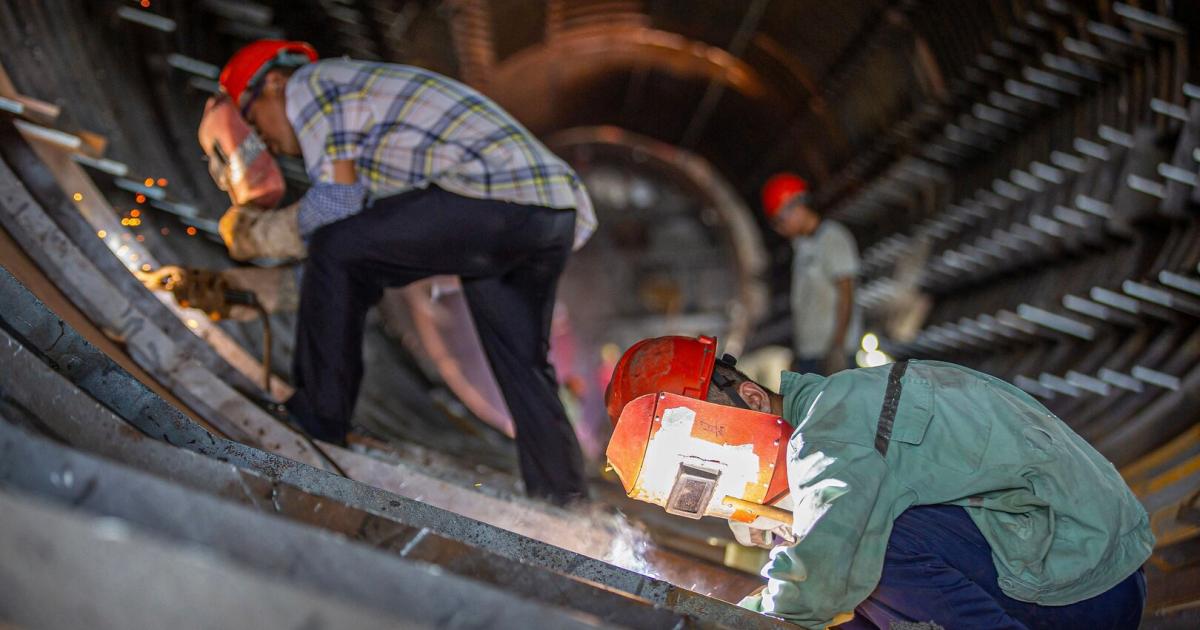There are some developments that a country really cannot be proud of. Until now, Germany was considered the “sick man” of Europe in economic terms. Austria has now earned this dubious title. At least if you follow the extensive analysis by Raiffeisen Research.
Its leader, Gunter Deuber and Johannes Rehulka Secretary General of the Raiffeisen Association, explained to journalists on Monday how Austria could achieve new growth.
Their findings are clear: Austria will not return to the level of its economic performance in 2022 until 2026. From 2022, Austria will decouple itself from the dynamics in Europe. This year only Ireland is growing more slowly than Austria (due to some special factors). If you take this as a standard of comparison Per capita growththen Austria is already at the absolute bottom in Europe with minus 1.7 percent. Rehulka: “Without a change of course there is a lot of drama, the trends are alarming.”
But also the now much higher one Budget deficit of up to 4 percent in the coming year is cause for concern and massively reduces the scope for new government initiatives. In addition, there are factors such as people’s reluctance to consume, companies’ massive lack of investment and collectively agreed wages that have risen twice as much as in the euro area, which the next federal government will have to deal with.
The suggestions from Rehulka and Deuber are logically located on several levels.
Short term rain them Investitionsanreize for companies, such as faster depreciation options. To do this, all federal states, including Vienna and Carinthia, would finally have to do this Housing package implemented by the federal government in the spring.
At the same time, the social partners demand that the coming KV contracts should only be below or at most at the level of inflation Wage moderation on. Within Europe, wage costs per hour would only be higher in Belgium, Germany and the Netherlands than in Austria. The wage share in relation to economic output was last at its current level in 1995. Wages up, competitiveness down, that can’t last forever. According to Deuber, there is actually a risk of the location becoming “abandoned” as feared by the former President of the Chamber of Commerce, Christoph Leitl, years ago.
To medium term For budget consolidation, Raiffeisen recommends a debt brake based on the models in Switzerland or Sweden. A larger one in the short term Savings package would now be the wrong approach and would simply stall the economy for good. New taxes would also be the wrong approach; Austria still has the fourth highest Tax and duty ratio in Europe. Counter-financing can be found in the area of subsidies, for example by canceling the climate bonus. The heads of WIFO and IHS also made similar suggestions on Friday.
Last but not least, massive efforts would also be needed De-bureaucratization. The “Deregulation Principles Act”, passed in 2017 but only valid until 2020, should also be reintroduced “High Representative” for the implementation of the reduction in bureaucracy is suggested.
Overall, the coming federal government needs a “clear reform agenda”; Germany, for example, could be a model from 2000 onwards. At that time, the red-green coalition was in power in Berlin for the first time under SPD Chancellor Gerhard Schröder. This constellation does not have a majority in Austria.
